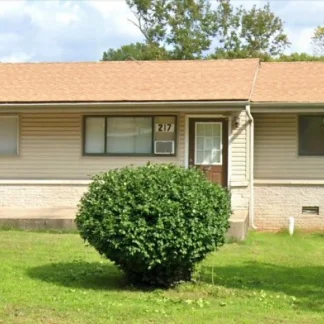Burrell Behavioral Health
Burrell Behavioral Health, located in Springfield, Missouri, offers programs to ...
Recovery Chapel is a long-term sober living environment for men located in Springfield, MO. Recovery Chapel specializes in the treatment of Alcoholism, Drug Addiction, and supports 12-step and Christian recovery meetings..
Recovery Chapel has six residential properties where the men live together as a family long-term. We provide training for long-term sobriety and require a minimum of a six-month commitment. This is the most important change in a man’s life and there is no “quick fix” for an entrenched addiction.
The founder is Chaplain Farris Robertson, his sobriety date is May 21, 1985, and he is our Program Director and leads the Recovery Chapel church congregation, which clients may or may not attend as they see fit. Still, four to seven therapeutic meetings per week are required of each client dependent upon their work situation.
We remain financially independent as each man pays his way, and we have no ties to state agencies that force us to do things their way. We are men in recovery, showing new men in recovery The Way. An application can be found online at our website, www.RecoveryChapel.org.
If you want to know more about our philosophy and leadership, please go to Amazon and get the tile written by Chaplain Farris and Ruth Robertson, “Recovery for the Christian Family: Surviving Alcoholism”. The entire family, not just addicts and alcoholics, should read this book so they are better equipped to understand and make a real difference to the addict, themselves, and others.
Contact us for more information: (417) 887-7228

Connect with Recovery Chapel by calling their admissions team directly.
(417) 887-7228 Website Get DirectionsState Licenses are permits issued by government agencies that allow rehab organizations to conduct business legally within a certain geographical area. Typically, the kind of program a rehab facility offers, along with its physical location, determines which licenses are required to operate legally.
State License: Missouri License Number: 100% Independent
Whether a marriage or other committed relationship, an intimate partnership is one of the most important aspects of a person's life. Drug and alcohol addiction affects both members of a couple in deep and meaningful ways, as does rehab and recovery. Couples therapy and other couples-focused treatment programs are significant parts of exploring triggers of addiction, as well as learning how to build healthy patterns to support ongoing sobriety.
Research clearly demonstrates that recovery is far more successful and sustainable when loved ones like family members participate in rehab and substance abuse treatment. Genetic factors may be at play when it comes to drug and alcohol addiction, as well as mental health issues. Family dynamics often play a critical role in addiction triggers, and if properly educated, family members can be a strong source of support when it comes to rehabilitation.
Group therapy is any therapeutic work that happens in a group (not one-on-one). There are a number of different group therapy modalities, including support groups, experiential therapy, psycho-education, and more. Group therapy involves treatment as well as processing interaction between group members.
In individual therapy, a patient meets one-on-one with a trained psychologist or counselor. Therapy is a pivotal part of effective substance abuse treatment, as it often covers root causes of addiction, including challenges faced by the patient in their social, family, and work/school life.
Research clearly demonstrates that recovery is far more successful and sustainable when loved ones like family members participate in rehab and substance abuse treatment. Genetic factors may be at play when it comes to drug and alcohol addiction, as well as mental health issues. Family dynamics often play a critical role in addiction triggers, and if properly educated, family members can be a strong source of support when it comes to rehabilitation.
Group therapy is any therapeutic work that happens in a group (not one-on-one). There are a number of different group therapy modalities, including support groups, experiential therapy, psycho-education, and more. Group therapy involves treatment as well as processing interaction between group members.
In individual therapy, a patient meets one-on-one with a trained psychologist or counselor. Therapy is a pivotal part of effective substance abuse treatment, as it often covers root causes of addiction, including challenges faced by the patient in their social, family, and work/school life.
Group therapy is any therapeutic work that happens in a group (not one-on-one). There are a number of different group therapy modalities, including support groups, experiential therapy, psycho-education, and more. Group therapy involves treatment as well as processing interaction between group members.
In individual therapy, a patient meets one-on-one with a trained psychologist or counselor. Therapy is a pivotal part of effective substance abuse treatment, as it often covers root causes of addiction, including challenges faced by the patient in their social, family, and work/school life.
In individual therapy, a patient meets one-on-one with a trained psychologist or counselor. Therapy is a pivotal part of effective substance abuse treatment, as it often covers root causes of addiction, including challenges faced by the patient in their social, family, and work/school life.
Burrell Behavioral Health, located in Springfield, Missouri, offers programs to ...
Preferred Family Healthcare - Champion Center is located in Springfield, Missour...
Preferred Family Healthcare- Carol Jones Recovery Center is a substance use diso...
Burrell Behavioral Health - Cherry Street is a non-profit organization that prov...